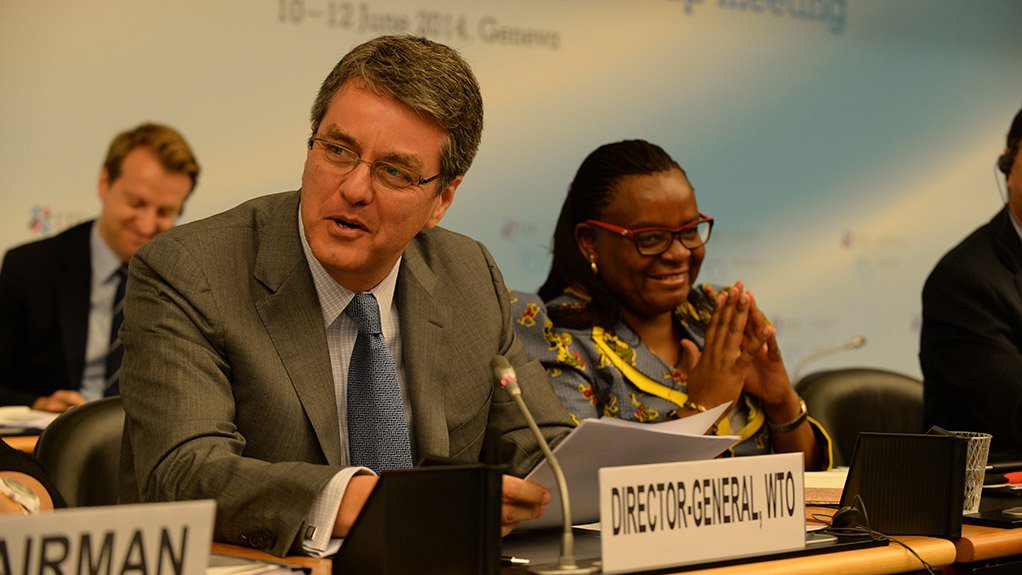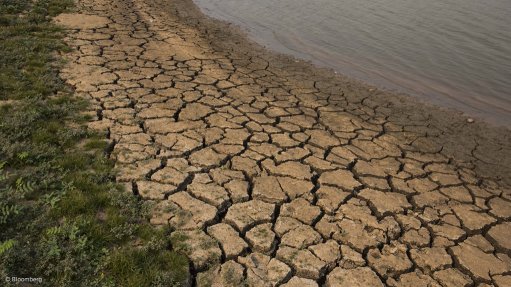G20 trade liberalisation measures increasing – WTO
Group of 20 (G20) member countries continue to introduce trade restrictions, but at a slightly slower rate, while the number of trade liberalising measures being introduced appears to be rising, a World Trade Organisation (WTO) report has found.
The report, published on Wednesday, stated that G20 members put in place 112 new trade restrictive measures between mid-November 2013 and mid-May 2014 – down from the 116 new restrictive measures introduced in the prior six months.
The number of trade liberalising measures implemented, however, increased to 93 between mid-November and mid-May, compared with 57 between mid-May and mid-November 2013.
While encouraged by the increased introduction of liberalising trade measures, WTO director-general Roberto Azevêdo noted that the "coat of trade restrictions had grown a bit thicker” over the period.
“This will not help our efforts to support growth and development around the world and we must therefore remain watchful. One way to reverse this trend is to make progress on the WTO's post-Bali agenda, aiming at two things: full implementation of the Bali decisions and rapid conclusion of the Doha round negotiations.
“On these issues, as on so many others, the leadership of the G20 will be essential,” he commented.
INCONSISTENT GROWTH
These observations came as the organisation revealed that world trade and output had continued to grow inconsistently since the December 2013 G20 trade report, with expansions in the fourth quarter of 2013 followed by setbacks in the first quarter of 2014.
“If the most recent gross domestic product growth forecasts hold, the volume of world merchandise trade is expected to grow by 4.7% in 2014 and by 5.3% in 2015, significantly larger than in 2013,” said the WTO.
The projection for 2014 remained below the 5.3% average of the last 20 years and the 6% average of the 20 years leading up to the 2008/9 financial crisis.
“Most of the risks to this trade outlook are on the downside,” the organisation noted.
RESTRICTIVE MEASURES
The report further found that, as in the past, trade remedy actions accounted for over half of the new restrictive measures applied during the period under review.
New import restrictive measures applied by G20 members affected 0.2% of world merchandise imports, and 0.3% of G20 merchandise imports.
Moreover, the vast majority of trade restrictive measures taken since the global financial crisis remained in place, with 1 185 trade restrictive measures having been recorded since October 2008, and only 251, or roughly one-fifth, of these having been removed by mid-May this year.
This brought the total number of measures still in place to 934 – 78 more than in the last reporting period.
“The relatively low removal rate and the addition of new restrictive measures have resulted in a continuing upward trend. Looking specifically at import restrictive measures, excluding those measures that have been reported as terminated, they are estimated to cover around 4.1% of world merchandise imports and around 5.2% of G20 imports,” read the report.
TRADE LIBERALISATION
While the WTO noted that the number of trade liberalising or facilitating measures had “encouragingly” increased over the period, the number of trade restrictive measures applied by G20 members still exceeded the number of liberalising measures.
However, the number of liberalising measures taken during the six months under review was “significantly larger” than in the previous period, both in absolute and in relative terms.
The number of trade liberalising measures now represented a larger share of all recorded measures (45%) than in the previous period (33%).
“Looking at import facilitating measures introduced during the period under review, they cover around 0.4% of world merchandise imports or 0.6% of G20 merchandise imports,” said the report.
INVIGORATED MULTILATERAL TRADING
The WTO stressed that the multilateral trading system remained the best defence against protectionism and an important driver of economic growth, sustainable recovery and development.
“The successful outcome of the WTO's ninth Ministerial Conference has provided an important opportunity to strengthen and reinvigorate the multilateral trading system.
“Implementation of the decisions reached in Bali and developing a work programme by the end of this year on the conclusion of the Doha Development Agenda are the next steps in strengthening the multilateral trading system,” the organisation maintained.
It believed that this would deliver a boost to trade around the world, as well as assist in alleviating concerns regarding obstacles to global trade flows.
“It will also help to deliver global growth, though protectionist pressures are bound to remain in a context of slow, uneven recovery and persistent high levels of unemployment. G20 members need to remain vigilant and show leadership in combatting such pressure,” said Azevêdo.
Comments
Press Office
Announcements
What's On
Subscribe to improve your user experience...
Option 1 (equivalent of R125 a month):
Receive a weekly copy of Creamer Media's Engineering News & Mining Weekly magazine
(print copy for those in South Africa and e-magazine for those outside of South Africa)
Receive daily email newsletters
Access to full search results
Access archive of magazine back copies
Access to Projects in Progress
Access to ONE Research Report of your choice in PDF format
Option 2 (equivalent of R375 a month):
All benefits from Option 1
PLUS
Access to Creamer Media's Research Channel Africa for ALL Research Reports, in PDF format, on various industrial and mining sectors
including Electricity; Water; Energy Transition; Hydrogen; Roads, Rail and Ports; Coal; Gold; Platinum; Battery Metals; etc.
Already a subscriber?
Forgotten your password?
Receive weekly copy of Creamer Media's Engineering News & Mining Weekly magazine (print copy for those in South Africa and e-magazine for those outside of South Africa)
➕
Recieve daily email newsletters
➕
Access to full search results
➕
Access archive of magazine back copies
➕
Access to Projects in Progress
➕
Access to ONE Research Report of your choice in PDF format
RESEARCH CHANNEL AFRICA
R4500 (equivalent of R375 a month)
SUBSCRIBEAll benefits from Option 1
➕
Access to Creamer Media's Research Channel Africa for ALL Research Reports on various industrial and mining sectors, in PDF format, including on:
Electricity
➕
Water
➕
Energy Transition
➕
Hydrogen
➕
Roads, Rail and Ports
➕
Coal
➕
Gold
➕
Platinum
➕
Battery Metals
➕
etc.
Receive all benefits from Option 1 or Option 2 delivered to numerous people at your company
➕
Multiple User names and Passwords for simultaneous log-ins
➕
Intranet integration access to all in your organisation





















